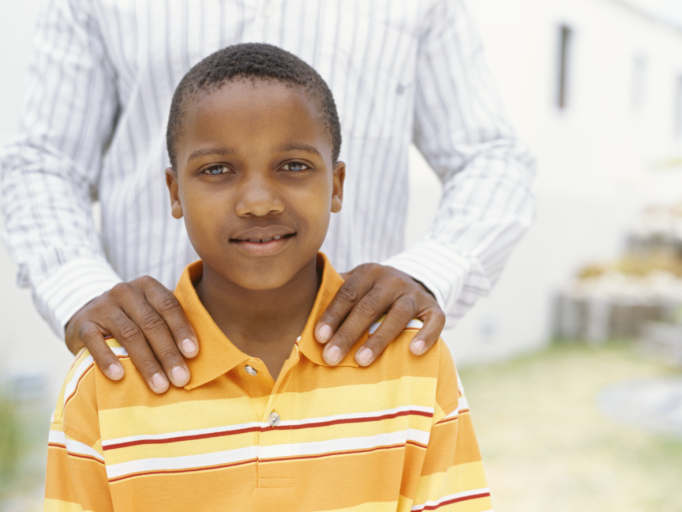
Ty* sits in his drug rehab group for another week. But, this week he decides to share why he’s been so angry most of his life, how he started using drugs and why he has had so many unsuccessful relationships. Ty says, “I just don’t have another run in me. I’ve been in and out of jail and groups for over 30 years now. I’ve been doing this since I was 15. I’ve used almost every drug out there. I thought I could numb this pain that I’ve felt since I was nine but no drug could do that. I tried drugs, making money and having as sex with any woman I could get with, but nothing changed what happened to me. In every group somebody tries to push me to share and usually I just say or do what I have to so I can get out, but this time I need something different. This time I need the pain to go away. I need a real change in my life.”
The pain that this gentleman is referring to is the emotional and traumatic pain experienced after being sexually abused from ages nine through 12 by his stepfather.
READ: Recognizing The Signs Of Sexual Abuse In Children & What To Do
Abuse of a child can come in many forms. According to the Child Abuse Prevention and Treatment Act (CAPTA), Child abuse can be defined as, “any recent act or failure to act on the part of a parent or caretaker, which results in death, serious physical or emotional harm, sexual abuse, or exploitation, or an act or failure to act which presents an imminent risk of serious harm.”
In 2014, the National Child Abuse and Neglect Data System (NCANDS), reported that of all child abuse cases, almost 75 percent were from neglect, 17 percent were from physical abuse and about 8.3 percent were from sexual abuse. In addition, a nationally estimated 1,580 children died of abuse and neglect at a rate of 2.13 per 100,000 children in the national population.
Although not often talked about, many men have been abused in one or in multiple forms. In fact, approximately one in six boys are sexually abused before age 16. The Journal of Traumatic Stress found that up to 80 percent of perpetrators were themselves abused as children.
How Abuse Affects Boys & Men
Abuse can take a toll on victims from the moment it occurs and can have an impact on the person for many years after the incident. Some of the long-term effects of abuse are depression, anxiety, post traumatic stress disorder (PTSD), suicidal thoughts, drug & alcohol abuse, erratic and inconsistent behavior and hyper/hypo sexuality.
READ: From Hurt To Healer: The "Tell Somebody" Movement
In 2005, the Research and Education Unit on Gendered Violence reports that men who were sexually abused as children were 10 times more likely to report suicidal ideation and PTSD. In addition, 17.2% of community men qualified for a clinical diagnosis of PTSD compared to 65.8% of men who were sexually abused as children.It can be difficult for a young boy to process and handle the traumatic impact of abuse. The Research and Education Unit on Gendered Violence has found many recurring themes in men who were abused as a child.
- Feeling unworthy to be a man
- Need to prove themselves sexually
- Feelings of intense anger
- Use of alcohol and drugs
READ: Types Of Abuse You May Have Overlooked
Each theme listed above describes an approach to deal with the pain. Abuse takes away a young boy’s innocence, safety and ability to trust the world, especially if the abuser is someone of importance, like a parent, coach or family member.
Often times people will say to the abused person that he should have said something to someone or done something about the abuse. In reality, disclosing about one’s abuse can be very difficult.
Many men might not disclose because of the fear of what will happen if they do (will that person he cares about be taken away or will they be punished), a threat given by the abuser ("if you tell someone about what happened I will hurt you or a family member"), thinking that they will not be believed (the abuser has more clout in the family or the family thinks the victim is lying), and that they won’t be seen as man enough in the eyes of others if they confess about the abuse (thinking that being abused takes away his manhood, toughness and sexuality).
Life After Abuse
Even though abuse can be extremely traumatic and have a lifelong impact on the abused person, healing is possible. It is possible for abused boys to become healed men and many victims have been able to experience a life full of fulfillment and success after abuse.
READ: Black Elementary School-Aged Suicide On The Rise
Many men use the power of their faith to help them heal, while others use therapy, supportive friends and families. Most men use a combination of faith, therapy, and a supportive network. Healing for most abused men is not an overnight process. There are many steps towards healing.
STEP 1: Admission
The rule to overcoming most things starts with admitting that there is a problem. Admitting that one was abused can be very difficult because it involves remembering what happened to you, which can feel just as painful as when it actually occurred, but is necessary for the healing process.
STEP 2: Seek help
As one goes through the healing process, the next step is to connect with someone, such as a therapist or spiritual counselor who works with childhood abuse. Even though you admitted that you were abused to yourself, it could take some time before you feel comfortable sharing the details with your counselor. Because trust was taken away from you as a victim, it will be important to build trust with the person helping you. Establishing trust and safety takes time.
STEP 3: Fight negative self-talk
Throughout the healing process it is important to accept that the abuse was not your fault. This means battling the thoughts in your head that try to tell you that you could have prevented the abuse, fought the abuser or that you should have told someone sooner than you did. As a result of the abuse, you could have a lot of negative thoughts about yourself and your abilities. The healing process includes attacking the negative thoughts and replacing them with thoughts about your strength, skills and courage.
READ: Why Are Suicides Increasing Among Young Black Boys?
If you can identify with the information or the story and would like to receive help, seek out a counselor and call 1-800-656-4673 (HOPE), the Rape Abuse & Incest National Network for help.
*Name has been altered to protect confidentiality.
 Dr. George James, LMFT is a staff therapist and an AAMFT-approved supervisor at Council For Relationships. In addition, Dr. James is the Program Director for the Couple & Family Therapy Program at Thomas Jefferson University. Dr. James is president and CEO of George Talks, LLC, a communication and consulting company. Dr. James is a nationally recognized speaker, seminar presenter and lecturer on various topics. Dr. James has taught, presented, spoken and consulted with multiple businesses, organizations, universities and places of faith. Visit his website www.GeorgeTalks.com.
Dr. George James, LMFT is a staff therapist and an AAMFT-approved supervisor at Council For Relationships. In addition, Dr. James is the Program Director for the Couple & Family Therapy Program at Thomas Jefferson University. Dr. James is president and CEO of George Talks, LLC, a communication and consulting company. Dr. James is a nationally recognized speaker, seminar presenter and lecturer on various topics. Dr. James has taught, presented, spoken and consulted with multiple businesses, organizations, universities and places of faith. Visit his website www.GeorgeTalks.com.









